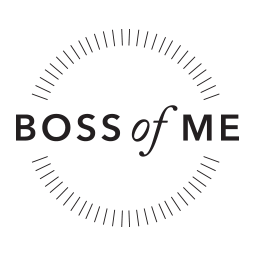“Putting together [my] book proposal was almost like examining my own thoughts and organizing them. I thought that even if the book didn’t get published, it was a useful exercise.”
- Timothy Ferriss
The Query Letter / Email
Also known as the one pager that gets you in the door...
A query letter is about capturing an editor’s initial attention and it can be in the form of an email. The object of writing a query is to introduce you and your project to the powers that be, and get them intrigued enough to take the next step - to agree to review your actual proposal.
A query is typically one page long. This is one rule you should never break. If you can’t get your message across in under a thousand words, you’re not clear enough on what it is. This is your first impression, possibly your one shot - it’s got to be concise, sincere, engaging, and grammatically perfect. It should sound like your natural voice. And it should vibe with your book. A dry proposal for a comedic book, for example, is no can-do.
In the following guidelines, you’ll see my best advice to consider when crafting your query. That said, not all of the following points are representative of every book. The lesson? Learn the “rules,” and then “follow” and interpret them with your own sense of style.
Guidelines to keep in mind:
· The writing needs to kick ass. Period. From beginning to end. ‘Nuff said.
· Address your query to a specific person, and do your research - know what they like, what they don’t. If they have no interest in cookbooks, children’s books, or mysteries, don’t waste your time.
· Hook ‘em. Start with a teaser. Something so riveting, shocking, or entertaining that they simply have to keep reading. Consider mentioning startling stats or facts; an explanation of the problem that you’re about to magically but-pragmatically solve, or revealing new ideas or research that makes your reader say, “Ah-ha!”
· What’s your title and estimated manuscript length (word count)? Is your book fiction (and completed—which should be the case), non-fiction (and halfway cooked, but thoroughly summarised), or a photography book about France in the springtime that will be finished upon your return from your trip next May? Whatever it is, be specific.
· Who yearns to know more about your subject? What’s your market? If millions of people every year become obsessed by your topic, spell it out. What does your book bring to the conversation that’s fresh and compelling? What successful titles (preferably via large publishing houses) can you compare yours to?
· Who are you? Why you? If 2,000 people have already written on the topic (for books on romantic relationships, that would be an annual number), what’s special about your take? Credentials. Past writing gigs. Awards. Life experience as it pertains to your subject. Just enough to pique the readers’ interest to want more...
· Polish, Polish, Polish. Stay clear of common rookie moves: Typos. Redundancy. Rambling. Ignorance. Vagueness. Assumptions (“You’re going to love this!”), and dryness (snore-inducing text). This is your chance for your VIP reader (your connector to many others) to fall in love with you and your work. Or at the very least, to start a crush.
